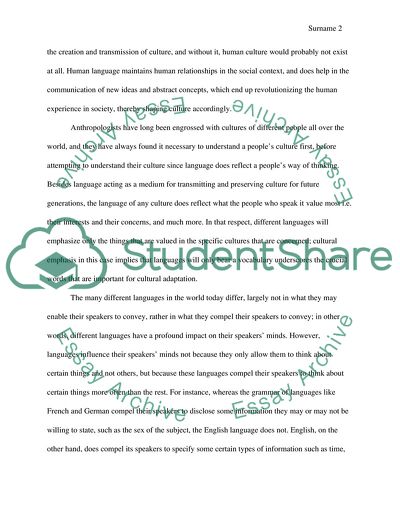Cite this document
(Language is a Verbalized Culture Essay Example | Topics and Well Written Essays - 1750 words - 1, n.d.)
Language is a Verbalized Culture Essay Example | Topics and Well Written Essays - 1750 words - 1. https://studentshare.org/culture/1806680-language-and-culture
Language is a Verbalized Culture Essay Example | Topics and Well Written Essays - 1750 words - 1. https://studentshare.org/culture/1806680-language-and-culture
(Language Is a Verbalized Culture Essay Example | Topics and Well Written Essays - 1750 Words - 1)
Language Is a Verbalized Culture Essay Example | Topics and Well Written Essays - 1750 Words - 1. https://studentshare.org/culture/1806680-language-and-culture.
Language Is a Verbalized Culture Essay Example | Topics and Well Written Essays - 1750 Words - 1. https://studentshare.org/culture/1806680-language-and-culture.
“Language Is a Verbalized Culture Essay Example | Topics and Well Written Essays - 1750 Words - 1”. https://studentshare.org/culture/1806680-language-and-culture.


